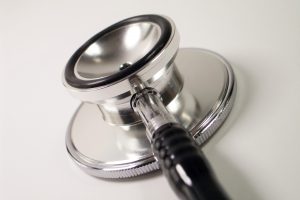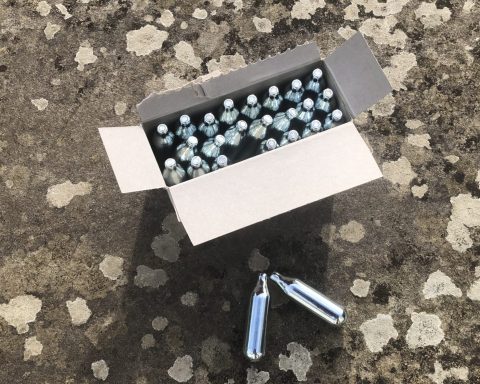 Diagnosis is one of the most rewarding aspects of medicine and is one of the most attractive features of general practice. There are few areas of medicine, arguably just general practice and the Emergency Department, where you get the opportunity to encounter a patient ‘fresh’, no prior history, no prior investigations, just you, the patient, and your clinical acumen. In general practice we often get the opportunity to make a diagnosis several times in the same ten minute period and, for me, the less investigating and referring I have to do to make a diagnosis the more satisfying it is.
Diagnosis is one of the most rewarding aspects of medicine and is one of the most attractive features of general practice. There are few areas of medicine, arguably just general practice and the Emergency Department, where you get the opportunity to encounter a patient ‘fresh’, no prior history, no prior investigations, just you, the patient, and your clinical acumen. In general practice we often get the opportunity to make a diagnosis several times in the same ten minute period and, for me, the less investigating and referring I have to do to make a diagnosis the more satisfying it is.
I think this is an undervalued part of our job. An attempt to sell a career in general practice to medical students and junior doctors usually involves talk of holistic and continuous care, variety of work and variety of opportunity but rarely do you hear an emphasis on the pleasure of seeing droves of patients teeming with fresh pathology. True, much of the pathology is mundane, but then much of it really isn’t, and the enormous challenge in our job is recognising pathology in all fields of medicine, surgery, psychiatry, paediatrics and on, and on.
By far the bulk of medical diagnoses in this country must be made in general practice and yet it seems to me that we allow our thunder to be somewhat stolen by the physicians who set themselves up as the master diagnosticians and the keepers of arcane knowledge. Take the differences in the membership exams for the colleges of GPs and physicians as an example.
The MRCGP is an incredibly pragmatic exam, focusing on common conditions, current guidelines and safe management. It culminates in the clinical skills assessment which is run like a morning surgery but, as it uses actors for patients, features no real pathology. This is the one weakness in an otherwise excellent exam.
In contrast, the MRCP is an unashamed peacock of an exam that bears only the faintest resemblance to reality. I remember learning in great detail about the diagnosis and treatment of Waldenstrom’s macroglobulinemia in preparation for the first part of the written exam as the condition seemed to crop up over and over again in the mock exams. My new found knowledge made me feel all fired up to go out and diagnose my first patient. Then I discovered the incidence was between 2 and 6 per million and I find that, seven years on, I’m still waiting to make that diagnosis and I’m not quite so fired up.
The pinnacle of the MRCP exam is PACES in which there are several stations where you get six minutes to examine a single organ system of a patient in virtual silence. You are then given an opportunity to talk confidently to the examiners about an illness you have probably never seen before, and may well never see again.
In some ways the difference in emphasis is backward. I have never known a secondary care physician make a diagnosis without a battery of investigations to back it up, but it is rare for a GP to make a diagnosis without a heavy reliance on clinical acumen.
Clearly there is a balance to be struck. A detailed knowledge of weird and wonderful conditions can induce the paralysis of the differential when confronted with a strange array of symptoms, but the one advantage of the MRCP is that it forces candidates to trawl the wards looking for clinical signs and so it ensures that they become confident in hearing heart murmurs and tipping spleens in a way that the MRCGP doesn’t.
As guardians of NHS resources, is it not worth us ensuring that our new trainees feel more confident in clinical examination and less reliant on investigation? To this end, should the MRCGP have more emphasis on recognising real physical signs? I think that confidence in examination enhances the pleasure of diagnosis, and I think the pleasure of confidently making diagnoses should be at the fore of marketing our specialty to prospective candidates.





Great article, Adam. I agree that clinical assessment and clinical diagnosis are important and rewarding, and that they’re under-represented in the current MRCGP examination. What can also be challenging and stimulating is the issue of ‘prognosis’ in the consultation. As GPs, we may not always be able to come up with an exact diagnosis, but I find we always have to decide whether a clinical presentation is likely to be serious or not – without immediate access to high-end investigations. Developing the confidence and skills to reassure patients based on clinical assessment, looking for red flags and dealing effectively with uncertainty are what I feel also make general practice exciting, taxing…and, if we take every clinical presentation seriously, never dull. The outcome of a GP consultation may also depend on the doctor as a person – showing interest in your patient, going the extra mile (or, in some cases, marathon), and bringing in your personality. So I agree, the MRCGP should put more emphasis on clinical examination and diagnosis – as well as prognosis. Looking to see what we could learn and adapt from the MRCP would be a good start.
Thanks Dr Schroeder. I often also feel that patients leave the consultation satisfied if they’ve been given a rough prognosis even if the diagnosis is vague, or the patient is given a non-specific, umbrella diagnosis like ‘musculoskeletal pain’. I suppose the challenge here is to make the patient as comfortable with the uncertainty as you are.
I actually think the MRCGP is an excellent diploma, by far the most pragmatic, realistic and thorough post graduate qualification that I know of. But the lack of emphasis on physical examination is a glaring omission which means that doctors can finish their training as GPs without having had their examination skills scrutinised in any meaningful way since medical school.
Thanks Adam, I fully agree with the points you’re making. Have you put your views forward to the College? Or do you have plans to do so? I was a GP Trainer and have a special interest in clinical examination. I’d be happy to support, in which case feel free to email me. Knut
Thanks Knut, I’ll send you an email.